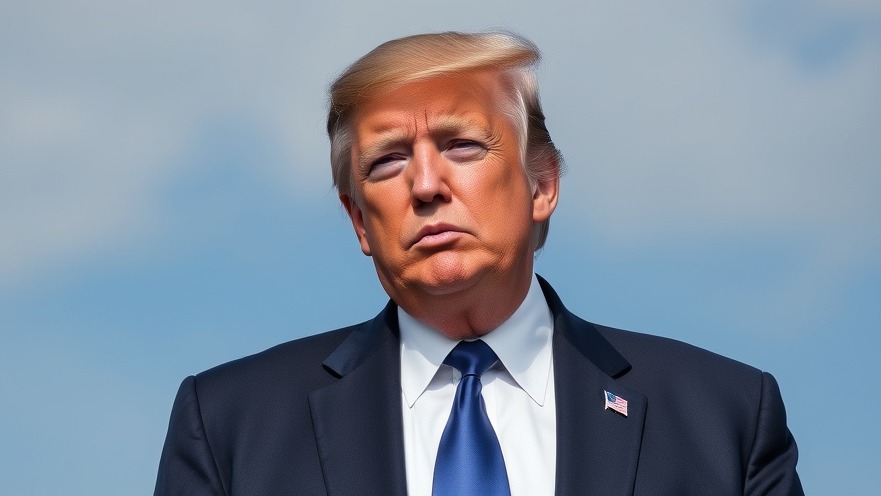
The Challenge of Understanding Antifa: Context Matters
The term Antifa has become a lightning rod in American political discourse. Anti-fascism, or Antifa, represents a decentralized movement known primarily for its opposition to far-right extremism. However, its organization and funding have sparked considerable debate, leading to contentious narratives that often lack nuance and clarity. Understanding the complexities surrounding Antifa requires an appreciation for the broader socio-political landscape in which it operates.
In 'Trump Asked If He Has Been Briefed On Antifa's 'Organization And Funding,' the discussion dives into the complex issue of Antifa's structure and financing, prompting a deeper analysis on our end.
Breaking Down the Myths Surrounding Antifa
Amid the ongoing discussions in national political news, many misconceptions have taken root regarding Antifa. A persistent myth is that Antifa is a unified organization with a centralized structure and clear funding sources. In reality, Antifa is made up of various independent groups and individuals, united primarily by a shared ideological goal rather than formal contractual relationships. Understanding this decentralized nature helps to demystify the movement and put its activities into context.
Looking Deeper: Funding and Organization
When discussing funding, it’s essential to recognize that Antifa, unlike traditional political organizations, doesn’t operate with funds in the same way. Funding for actions against far-right groups often comes from grassroots donations and local initiatives. As such, evaluating Antifa’s financial landscape is complicated, partly due to the heavy overlap with various advocacy groups and social movements aiming for common goals, such as racial justice and anti-authoritarianism.
Understanding the Workings of Grassroots Movements
Grassroots organizations generally rely on community support and small donations rather than corporate or governmental sponsorship. This model allows groups like Antifa to remain independent and true to their goals but makes tracking their activities and funding tricky. Critics often leverage this difficulty to argue that the lack of transparency indicates nefariousness, contradicting the spirit of grassroots activism itself.
The Broader Political Landscape and Its Implications
The discussion sparked by Trump's inquiry about Antifa reflects larger societal rifts currently manifesting in U.S. headlines today. The political atmosphere is fraught with polarization, akin to a civil tug-of-war where different ideologies battle for dominance, often through street-level confrontations. In this environment, understanding Antifa becomes not just a matter of examining one group's activities but also recognizing how its existence shapes broader national conversations on democracy, civil rights, and social justice.
Future Predictions: The Evolution of Far-Right and Anti-Fascist Responses
As American society continues to grapple with profound demographic changes and ideological divides, we can anticipate the evolution of both far-right movements and anti-fascist responses. Historical trends suggest that public protests will continue. However, both sides may need to adapt their strategies to resonate with ever-growing segments of the population. Tracking these changes will be critical in upcoming federal legislation and domestic news updates.
What Citizens Can Do: Engaging in Informed Dialogue
For the average American citizen, understanding the nuances of political movements like Antifa is crucial. Instead of relying solely on national news sources, engaging with a variety of worldviews, participating in community forums, and examining data around political movements can lead to more informed discussions. Civic engagement is not simply about voting; it involves understanding each other's perspectives and the complexities surrounding our democracy.
In light of Trump's questioning about Antifa's funding and organization, we recognize an opportunity to broaden the conversation. As we delve into the details, it becomes apparent that our understanding of social movements and protests directly informs our grasp of national politics and social justice. By investing time in educating ourselves and others, we contribute to a responsible civic dialogue that challenges myths and encourages informed action.
To explore more insights into political activism and community engagement, stay informed through our latest updates on national political news and current events in the USA.
 Add Element
Add Element  Add Row
Add Row 



Write A Comment